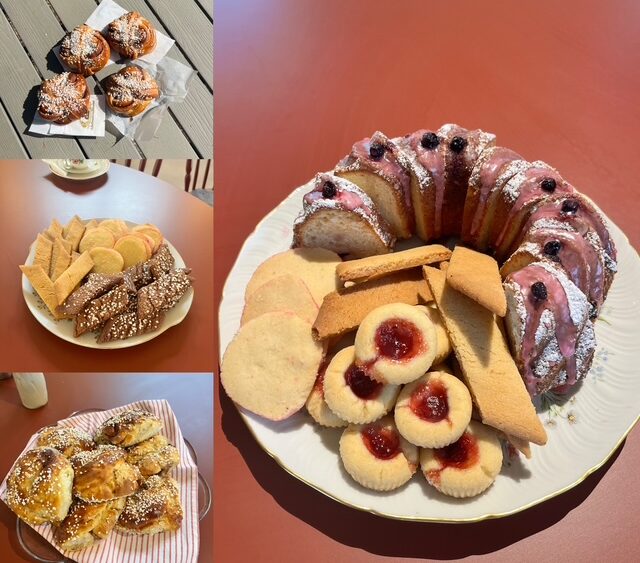In Sweden, productivity doesn’t mean rushing—it means knowing when to stop.
Nothing captures that ethos more charmingly than fika, the twice-daily ritual of coffee, cake, and connection. It’s not just a break; it’s a cultural institution.
The word fika is believed to have originated in the 19th century, a playful inversion of kaffi—the old Swedish word for coffee. But while the name may be light hearted, the tradition is deeply rooted. Coffee itself arrived in Sweden in the 18th century, and after several bans (yes, really), it eventually became a national obsession. By the time patisseries flourished in the 19th century, fika had evolved into a full-fledged social custom: strong coffee paired with sweet baked goods, shared in good company.
Today, fika is woven into the fabric of Swedish life. Offices pause mid-morning and mid-afternoon for fikapaus, where colleagues gather not just to refuel, but to bond. It’s a moment to leave titles at the door, share ideas, and strengthen team spirit. At home, fika is a gesture of hospitality – an invitation to slow down, connect, and savour.
Having just returned from Sweden, I can attest: fika is serious business. Twice a day, cafés fill with locals sipping jet-black coffee and nibbling on kanelbullar (cinnamon buns), chokladbollar (chocolate balls), and fikabröd of every variety. I was handed a generous slice of cake and a mug of coffee so strong it could stand a spoon upright. Delicious, yes – but I couldn’t finish it all.
What makes fika so compelling is its simplicity. No rush, no screens, no pretence. Just a table, a brew, and a shared moment. In a world that glorifies hustle, Sweden reminds us that pausing is productive too.
For business travellers, embracing fika isn’t just about adapting to local rhythm – it’s about understanding a culture that values balance, connection, and the joy of small things and if you can’t finish the cake? That’s perfectly fine. There’s always the next fika.


